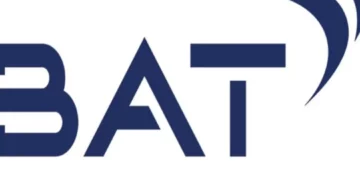In a move to bolster regional collaboration and deepen financial integration across Africa, the Central Bank of Nigeria (CBN) and the Bank of Angola have signed a Memorandum of Understanding (MoU) on financial and technical cooperation.
The signing of the MoU by both countries held on the sidelines of the ongoing 2025 International Monetary Fund (IMF)/ World Bank annual meetings in Washington DC is expected to enhance bilateral engagement in monetary and financial regulation.
Speaking at the signing of the technical cooperation agreement, CBN governor , Olayemi Cardoso said, “this is something that has been long in the making, and I’m very pleased that we have been able to execute the agreement today. It couldn’t have come at a better time or in a better place. I believe that what we have done today truly reflects the spirit in which we attend the annual and spring meetings every year.
“I’m also particularly pleased because this is exactly what Africa needs. We need more cooperation. We face similar challenges, and this agreement provides an opportunity to strengthen, and in some cases, build, regional understanding and collaboration. I am very, very pleased, and I believe that this marks a significant milestone for both organizations and for both countries.’
Giving details of the MOU, Deputy Governor, Economic Policy, Central Bank of Nigeria, Mohammed Abdullai, described the agreement as “a critical development between our two institutions” aimed at broadening mutual support in key areas of central banking operations.
He outlined the objectives of the MoU to include the establishment of a bilateral forum for technical exchange, cooperation in cross-border supervision, information sharing on cybersecurity, and capacity building in financial sector oversight.
“This agreement will create a structured platform for reciprocal technical assistance and ensure transparency in the exchange of information between our two institutions,” Abdullai said. “It also provides a clear framework for licensing, supervision, and resolution planning for cross-border financial establishments.”
According to him, both institutions will collaborate in several technical areas, including foreign reserves management, financial markets operations, economic research, and statistics. Other focal points include payment systems oversight, financial sector development, anti-money laundering and combating the financing of terrorism (AML/CFT), as well as staff training and knowledge exchange.
He expressed optimism that the implementation of the MoU would yield mutually beneficial outcomes for both countries and contribute to the overall stability of Africa’s financial ecosystem.





